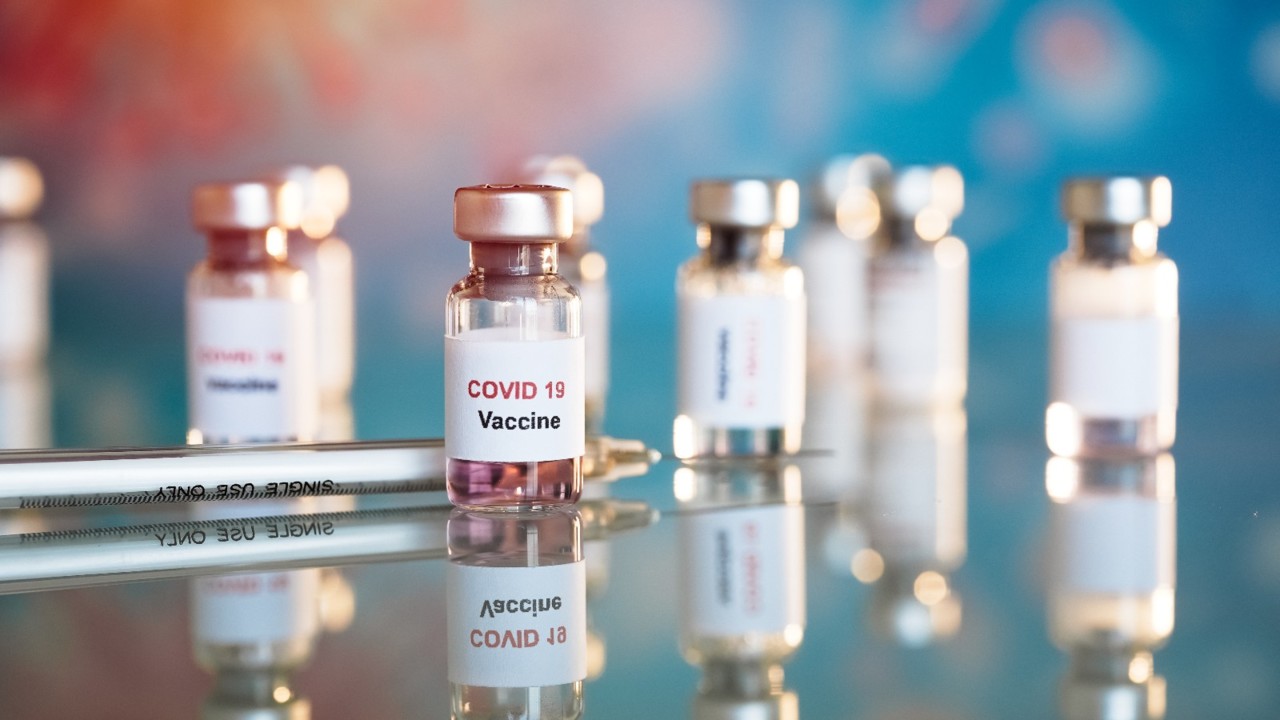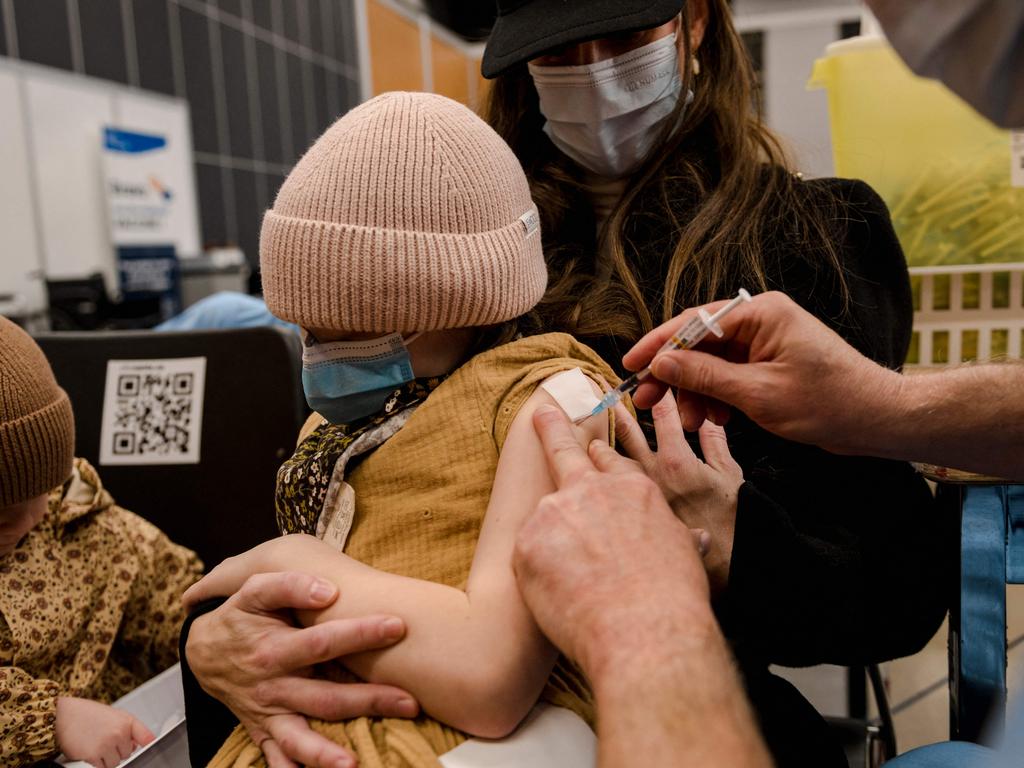NBL star Ben Madgen diagnosed with pericarditis after Pfizer vaccine
Former Aussie basketball star Ben Madgen says he was hospitalised with a rare inflammatory heart condition after his Covid-19 vaccine.

Aussie basketball star Ben Madgen says he was hospitalised with a rare inflammatory heart condition after his Covid-19 vaccine.
Madgen, a former NBL leading scorer who retired from professional basketball last year, described his experience in a Twitter post on Sunday that has since been shared nearly 15,000 times.
“Ended up in the emergency room on Wednesday night after taking the second Pfizer shot,” the 36-year-old wrote.
“Diagnosed with pericarditis. The doctor said this is now common after the Pfizer shot, especially with teenage boys and young males.”
Ended up in the emergency room on Wednesday night after taking the 2nd Pfizer shot. Diagnosed with Pericarditis. The Dr. said this is now common after the Pfizer shot, especially with teenage boys and young males 🤔🤔🤔
— Ben Madgen (@iMadgen01) December 4, 2021
Madgen, brother of Collingwood defender Jack Madgen and Opals point guard Tess Madgen, led scoring in the 2012-13 NBL season while with the Sydney Kings, averaging 17.9 points per game.
The 193cm shooting guard was named to the All-NBL first team and honoured as Most Improved Player in that season.
After starting his career as a development player with the Adelaide 36ers, he played college basketball in the US with Augusta State University from 2006 to 2010.
From 2015 played for European teams in Belgium, Lithuania and Germany, where he was the leading scorer and rebounder for the Crailsheim Merlins in the German Bundesliga.
Madgen signed with the South East Melbourne Phoenix for the 2019-20 NBL season, but announced his retirement in July last year to spend more time with his family.
News.com.au has contacted Madgen for comment.

Myocarditis, or inflammation of the heart, and pericarditis, or inflammation of lining around the heart, are known but rare side effects associated with the Pfizer and Moderna mRNA vaccines.
According to the Therapeutic Goods Administration (TGA), myocarditis is reported in 1-2 out of every 100,000 people who receive Pfizer, but it is more common in young men and teenage boys after the second dose at 6-11 cases per 100,000.
Last month the rate was given as 3-7 cases per 100,000.
“The number of reports of myocarditis is increasing each week, which is expected as the number of vaccine doses given also increases each week,” the TGA says in its most recent safety report.
“Myocarditis is seen much more commonly in people who become infected with Covid-19 than in people who are vaccinated.”
Other public figures have previously spoken up about being diagnosed with myocarditis or pericarditis after the Pfizer vaccine, including Channel 7 journalist Denham Hitchcock and Daily Telegraph reporter Georgia Clark.
Hannah Scott, a Network Ten employee and the ex-girlfriend of model Kris Smith, also shared her experience, along with radio host Jackie ‘O’ Henderson, who said her ex-husband Lee Henderson was left “in a bad way” after suffering the rare side effect.
As of November 28, 2021, the TGA has received 354 reports assessed as likely to be myocarditis from about 24.4 million doses of Pfizer – an increase of 13 from a week earlier.
There have also been 693 cases of suspected myocarditis – either with or without pericarditis – an increase of 50 on the prior week, and 1471 cases of suspected pericarditis alone.
Among adolescents aged 12 to 17, there have been 102 likely cases of myocarditis, 137 suspected cases of myocarditis and 109 suspected cases of pericarditis.
The youngest case classified as “likely myocarditis” to date was 12 years old.
Of the likely cases, around half were admitted to hospital with nine treated in intensive care.
Most patients treated in hospital were discharged within four days.

The federal government’s vaccine advisory group, the Australian Technical Advisory Group on Immunisation (ATAGI), recommends that people who develop myocarditis after their first dose should hold off on the second and consult their doctor.
People with suspected pericarditis after their first dose can still get their second dose once their test results return to normal levels and they have been symptom-free for at least six weeks.
“Most myocarditis and pericarditis linked to mRNA vaccination has been mild and patients have recovered quickly,” ATAGI’s guidance states.
“Longer-term follow-up is ongoing.”
Symptoms of myocarditis or pericarditis typically appear within one to five days and may include chest pain, palpitations (irregular heartbeat), syncope (fainting) or shortness of breath.
“People who experience any of these symptoms after having an mRNA Covid-19 vaccine should seek prompt medical attention,” ATAGI says.
It comes as the government prepares to push ahead with vaccinating children aged five to 11.
In a statement on Sunday, the TGA announced that subject to final consideration from ATAGI, and other related approvals, the government will start rolling out the Pfizer vaccine to under-12s from January 10.
Children aged five to 11 who eventually receive the jab can expect to experience similar side effects to adults who received Pfizer, according to TGA head John Skerritt.
The most common side effects of Pfizer in adults are sore arm, tiredness, fatigue, headache, fever and chills.
“The children had some of the same things that adults get tiredness or arms, headache, and so forth,” Dr Skerritt said.
“But these tended to be brief and fairly short lived.”
Former deputy chief medical officer Nick Coatsworth has previously cautioned against the rush to vaccinate younger children.
Dr Coatsworth said last month the risks of severe illness from Covid-19 remained low for younger children, and needed to be weighed against the risk of rare side effects from vaccination.
“Whilst I encourage parents to vaccinate their 12- to 15-year-old children, the risk of myocarditis especially in young boys is sufficient that parents have every right to wait for more data or to decline vaccination,” he said.
“In doing so, the child must not then be subject to differential public health treatment which is effectively ‘mandating’ by regulation.”






